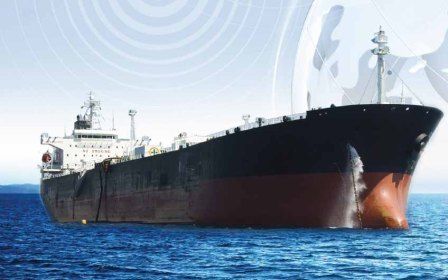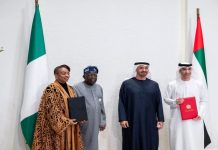The World Maritime Day is recognized by the United Nations as a day set aside to celebrate the contribution of shipping to the global economy. Shipping is perhaps the most international of all the world’s great industries. The ownership and management chain surrounding any particular vessel can embrace many different countries.
It is not unusual to find that the owners, operators, shippers, charterers, insurers and the classification society, not to mention the officers and crew, are all of different nationalities and that none of these is from the country whose flag flies at the ship’s stern. Ships of various sizes, shapes and make move more than 80 per cent by volume and 70 per cent by value of the world freight.
The theme for World Maritime Day 2016 is “Shipping: Indispensable to the world”. According to the International Maritime Organisation (IMO), the theme was chosen to focus on the critical link between shipping and global society and to raise awareness of the relevance of the role of IMO as the global regulatory body for international shipping.
World Maritime Day 2016 will be celebrated at IMO Headquarters in London on Thursday 29 September 2016 while IMO Member States are at liberty to observe the Day on any date of their choice during the week.
World Maritime Day 2016 offers another opportunity for us in Nigeria to reflect on the state of our maritime industry and proffer ideas on how to develop the industry.
Nigeria is endowed with a vast coastline, an extensive exclusive economic zone and a huge market. One sure way of harnessing these resources will be by ensuring that ships owned by Nigerians are empowered and assisted to trade on the nation’s territorial waters. This is so because shipping is capital intensive and many countries have employed protectionist policies to aid their ship owners.
Nigerian shipping companies must therefore be supported by government to actively participate in the movement of the nation’s seaborne cargoes. This can be achieved through a committed implementation of the Coastal and Inland Shipping Act 2003, otherwise known as the Cabotage Law. A diligent and effective implementation of the Cabotage Law will not only ensure retention of strong economic value within the country, it will also support government’s drive for massive job creation and poverty alleviation.
The present administration must also be concerned that since crude oil was discovered in commercial quantity in the country six decades ago, no Nigerian shipping company has been part of moving a drop of the oil to the export market. Nigerians also do not own any of the over 8,000 seagoing ships that visit the nation’s seaports and jetties every year bringing in all manners of goods including food, clothes, household items, industrial raw materials, petroleum products, automobiles and luxury goods. This situation is a source of concern to many maritime experts as it leads to the loss of a large amount of foreign exchange.
On the port side, the maritime industry has recorded appreciable gains over the past ten years as a result of port concession. Before the concession championed by the administration of former President Olusegun Obasanjo, the nation’s port facilities were bogged down by unnecessarily high bureaucracy, obsolete equipment, bloated and untrained workforce, inefficiency and corruption all leading to congestion and long vessel queues on the waterways. All of these ills have however been fully addressed by the terminal operators otherwise known as concessionaires.
The successes recorded at the ports so far notwithstanding, there are challenges the government must address urgently to ensure the country enjoys the full benefits of private participation in the running of port operations in the country. There are some policies introduced by the former administration of Dr. Goodluck Jonathan that must be reviewed.
The policies must be reviewed because they have conspired to deprive Nigeria’s six major seaports of much needed cargo while fuelling patronage of the ports of neighbouring countries such as Cotonou, Lome and Tema Ports.
The policies include the poorly conceived and haphazardly implemented National Automotive Policy, the hike in import duty and tariffs on imported vehicles from 20 per cent to 70 per cent, the hike in import duty and surcharge on rice and the fish quota system which have also served to fuel smuggling through the nation’s porous borders.
Government can also boost operations at the port by ensuring that it plays its own part fully as spelt out under the concession agreement. This is because the failure of government, through the Nigerian Ports Authority, to fulfill its own part of the port concession agreement is hampering effective service delivery and creating additional cost burden for operators, who have substantially kept their own part of the bargain.
Government’s responsibilities include the provision of utilities including independent power plant at the six major seaports across the country, which it has failed to do in ten years. The government has also failed to provide good and usable port access roads, thereby slowing down the rate of cargo delivery in and out of the nation’s seaports; maintenance of berths and navigational aids and port services including dredging of the port channels and berths to 13.5metres.
There is also a need to urgently address primitive cargo clearance procedures employd by the Nigeria Customs Service and other government agencies at the port.
Happy World Maritime Day.
Credit: S&P













